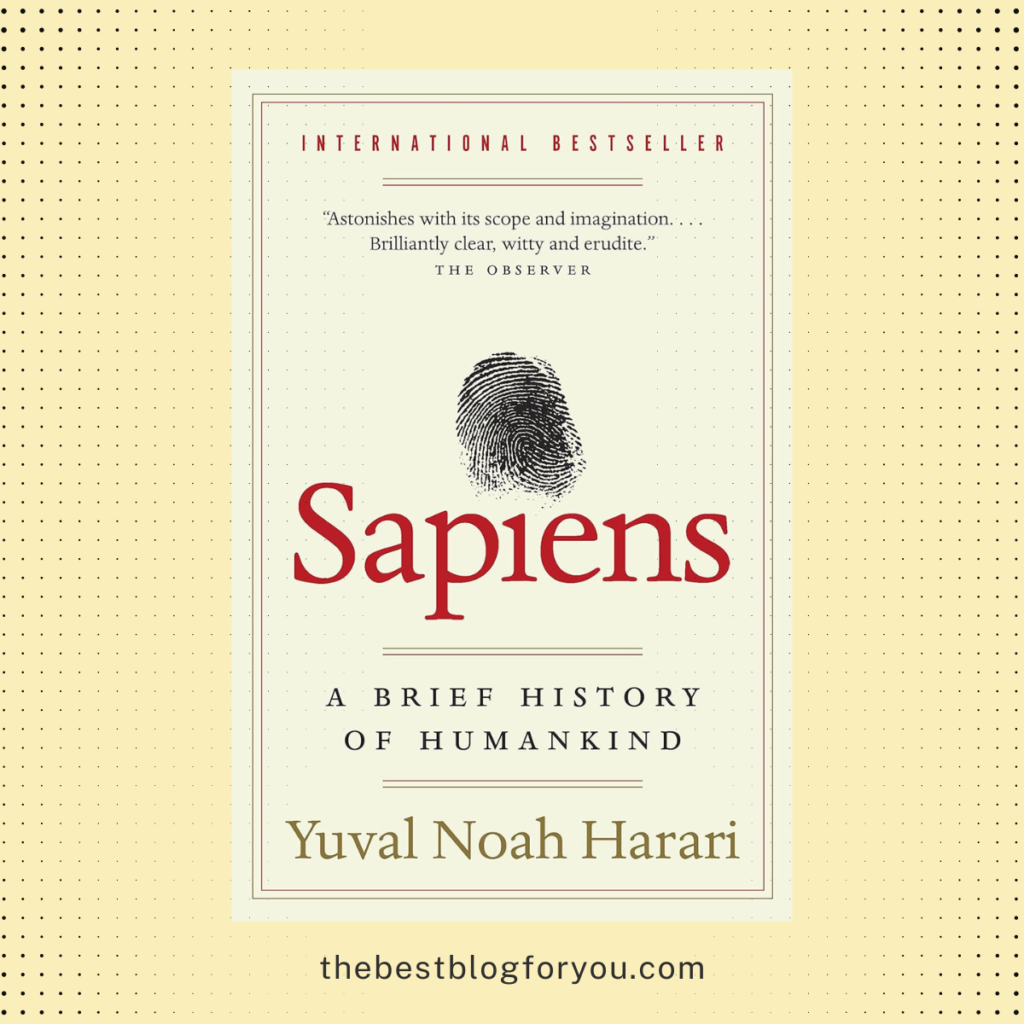
1. On Human Evolution and Consciousness:
“Homo sapiens are the only animals that can talk about the future. We have an incredible ability to create and believe in shared myths.”
Harari emphasizes the unique human ability to imagine and plan for the future, which sets us apart from other species. Our capacity to create and believe in shared myths is fundamental to our societal development.
“The cognitive revolution is the point when humans started to surpass other animals and began to shape the world.”
The cognitive revolution marked the beginning of significant changes in human cognition, leading to our ability to communicate complex ideas and shape our environment in unprecedented ways.
2. On Storytelling and Shared Myths:
“Humans think in stories rather than in numbers.”
Our brains are wired to understand and remember information through narratives rather than abstract concepts. Storytelling is a powerful tool for making sense of the world.
“The most important thing for humans is not the actual facts of our lives, but the stories we tell ourselves about our lives.”
Our perception of reality is shaped more by the stories we create and believe in than by the objective facts of our existence. These narratives influence our identity and actions.
3. On Power and Hierarchies:
“Power is based on belief. The most powerful people are those who can make others believe in the same things they believe in.”
Harari argues that power often comes from the ability to influence and unite people around shared beliefs. Leaders and institutions that successfully create and enforce common narratives hold significant power.
“Social hierarchies are built on imagined orders. They exist because we collectively believe in them.”
Hierarchies and social structures are not inherent but are constructed based on collective belief. Our acceptance of these imagined orders reinforces their existence.
4. On Capitalism and Economics:
“The capitalist vision of eternal economic growth has become the dominant way of thinking about human progress.”
Capitalism’s focus on perpetual economic growth has shaped modern conceptions of progress and development. This vision drives much of contemporary economic and political decision-making.
“Money is the most universal and versatile medium of exchange ever invented. It allows us to trade almost anything with anyone.”
Money’s flexibility and widespread acceptance make it a powerful tool for facilitating trade and transactions across different cultures and societies.
5. On Technology and Future:
“Technological advancements will transform the future of humanity in ways we can’t fully comprehend.”
Harari highlights the profound impact of technology on our future. Innovations will continue to reshape human experience and society, presenting both opportunities and challenges.
“The future will be shaped by new technologies, and humans will need to adapt to these changes.”
As technology evolves, humans must adapt to new realities and challenges. Our ability to navigate and integrate these changes will define our future.
6. On Happiness and Well-being:
“Happiness depends more on social relations and personal relationships than on material wealth.”
Harari suggests that meaningful relationships and social connections are more crucial to our happiness than financial success. Our well-being is deeply influenced by our interactions with others.
“We are not just a species of biological organisms but also a species of stories and myths.”
Humans are defined not only by our biology but also by the stories and myths we create and share. These narratives shape our culture, values, and understanding of ourselves.
7. On Human Behavior and Cooperation:
“Human cooperation is based on shared beliefs and mutual trust. We work together because we believe in common goals and values.”
Effective cooperation relies on shared beliefs and trust. Our ability to work together towards common objectives is rooted in our mutual understanding and commitment to shared values.
“The success of Homo sapiens is a result of our ability to cooperate in large groups based on common myths and stories.”
Our species’ success stems from our ability to form large-scale cooperations based on shared myths. These collective narratives enable us to achieve goals that would be impossible individually.
8. On Human Impact and Environmental Challenges:
“Humans have had a profound impact on the environment, often leading to ecological imbalance and degradation.”
Our activities have significantly altered the natural environment, often resulting in negative consequences such as ecological imbalance and environmental degradation.
“The Anthropocene epoch is defined by the significant impact of human activity on the Earth’s ecosystems.”
The current geological epoch, known as the Anthropocene, is characterized by the profound influence of human actions on the planet’s ecosystems and climate.
9. On the Concept of Time and Historical Perspective:
“History is a collection of stories that humans tell themselves about their past. These stories shape our understanding of the present and future.”
Our interpretation of history is constructed from the narratives we create about the past. These historical stories influence our current perspectives and future outlooks.
“The way we understand and interpret time affects how we live and make decisions.”
Our perception of time influences our actions and choices. How we conceptualize and value time impacts our behavior and decision-making processes.
10. On Religion and Belief Systems:
“Religions are powerful systems of shared beliefs that provide meaning and order to human societies.”
Religions offer a framework for understanding the world and organizing societies through shared beliefs. They play a crucial role in providing meaning and structure to human life.
“Belief in a higher power or divine plan can provide individuals with a sense of purpose and direction.”
Faith in a higher power or divine plan offers a sense of purpose and guidance. Such beliefs can help individuals navigate life’s challenges and find meaning.
11. On Human Nature and Adaptability:
“Humans have an extraordinary ability to adapt to diverse environments and challenges.”
Our adaptability allows us to thrive in various conditions and overcome numerous obstacles. This flexibility is a key factor in our species’ survival and success.
“Our capacity for innovation and creativity has been essential in shaping human history and progress.”
Innovation and creativity drive human development and historical progress. Our ability to invent and imagine has propelled us forward and transformed societies.
12. On Globalization and Cultural Exchange:
“Globalization has interconnected the world in unprecedented ways, leading to cultural exchange and integration.”
The process of globalization has brought the world closer together, facilitating cultural exchange and integration across different societies.
“Cultural exchange enriches societies by introducing new ideas, practices, and perspectives.”
Interactions between cultures lead to the sharing of ideas, practices, and perspectives, enriching societies and fostering greater understanding.
13. On Power and Influence:
“Power often comes from the ability to shape and control narratives and beliefs.”
Those who can influence and control narratives hold significant power. Shaping beliefs and perceptions is a critical aspect of wielding authority.
“Influence is exerted through the dissemination of ideas and the creation of shared values.”
Influence is achieved by spreading ideas and establishing common values. Effective dissemination of thoughts and beliefs enhances one’s ability to impact others.
14. On Ethics and Morality:
“Ethics and morality are shaped by cultural norms and historical contexts.”
Our understanding of ethics and morality is influenced by cultural norms and historical circumstances. These concepts evolve based on societal values and historical developments.
“Moral frameworks provide a basis for evaluating actions and guiding behavior.”
Moral frameworks help us assess actions and guide our behavior. They offer principles for distinguishing right from wrong and making ethical decisions.
15. On the Future of Humanity:
“The future of humanity will be shaped by our ability to address global challenges and make ethical decisions.”
Our capacity to tackle global issues and make ethical choices will determine the trajectory of humanity’s future. Addressing these challenges requires collective effort and responsible decision-making.
“The choices we make today will have a lasting impact on future generations and the planet.”
Our current decisions will influence future generations and the environment. It is crucial to consider the long-term effects of our actions on both people and the planet.
